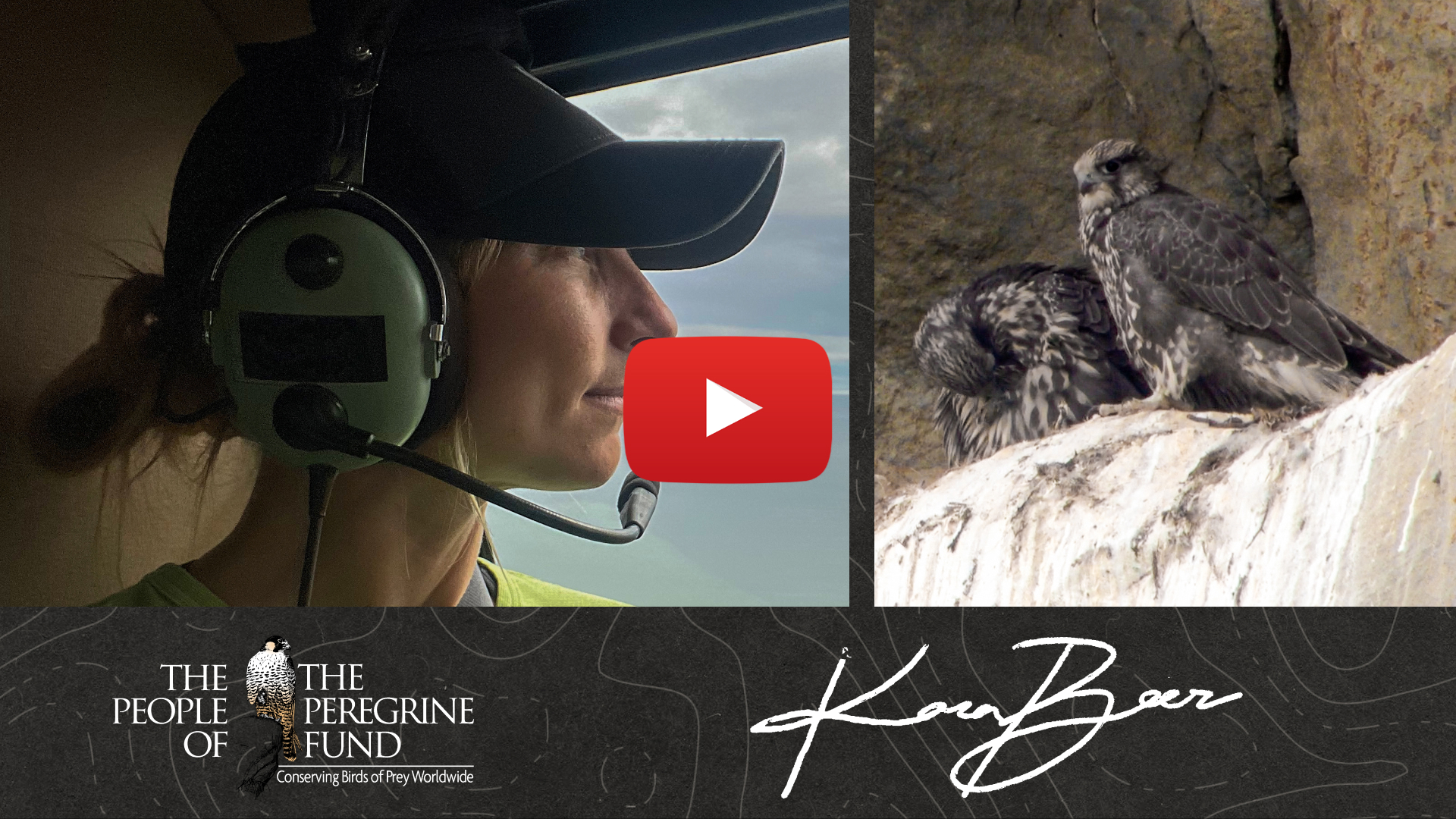
Carter Freymiller
The People of The Peregrine Fund: Kara Beer
A mere hundred miles south of the Arctic Circle in western Alaska lies the small community of Nome. Perhaps most well-known as the finish line for the famous Iditarod sled dog race, the town is also the base of operations for our northernmost project: the Gyrfalcon & Tundra Conservation Program. And every summer, for the project’s Crew Lead Kara Beer, it’s home.
“It’s surreal to be able to live and work in this unique landscape,” Kara shares. “The Arctic feels like one of the last truly wild places on Earth. It’s vast, remote, and extreme.”
Kara and our field team conduct a wide variety of research in the region, focusing primarily on the project’s eponymous species, the Gyrfalcon, but also on several other raptors, including the Rough-legged Buzzard (more commonly known in North America as the Rough-legged Hawk) and the Golden Eagle. “We monitor everything from prey abundance to breeding success,” Kara explains. But in a land where roads are scarce, this is easier said than done. Helicopter travel is critical to even get close to many study sites, and things don’t get any easier once on the ground. “Snowshoeing, packrafting across rivers, rappelling down cliffs… it’s all in a day’s work.”
The region’s creatures are much more at home here than the humans that study them, but this is both a strength and a weakness. “The animals here are highly adapted to survive in these incredibly harsh conditions, which makes them resilient, but also vulnerable in the face of climate change,” notes Kara. Temperatures in the Arctic are rising several times faster than the global average, exposing the region’s species to more severe weather conditions, new diseases, and other novel threats. Careful research of these threats as they emerge is as critical as it is challenging.
It’s work that Kara is proud to do. “Conservation, for me, was a way to turn a lifelong fascination with wildlife into impact,” she says with a smile. “It’s super motivating to know that the work we’re doing is making a difference.”
Catch more installments of "The People of The Peregrine Fund" here.






